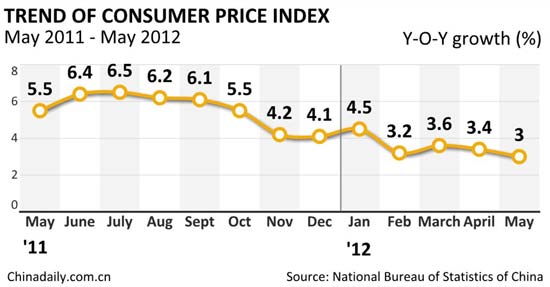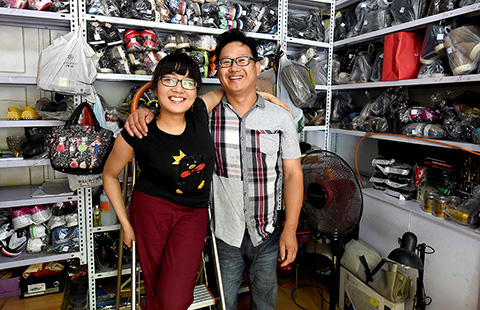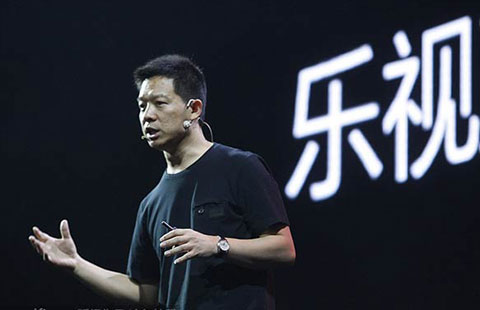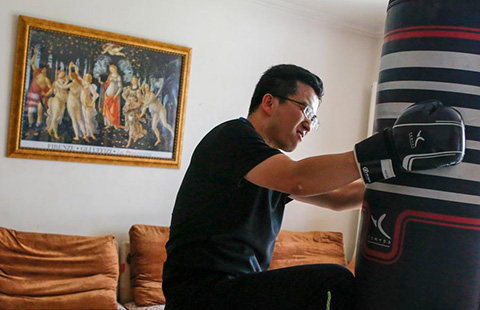


BEIJING - China's consumer price index (CPI), a main gauge of inflation, slowed to 3.0 percent year-on-year in May, the National Bureau of Statistics (NBS) said Saturday.
It marked a 17-month-low, easing from April's 3.4 percent and 3.6 percent in March.
Compared with the previous month, it edged down 0.3 percent in May, the NBS said.
The CPI climbed 3.5 percent in the first five months compared with the same period of last year year.
Food prices, which account for nearly one-third of the weighting in the calculation of China's CPI, increased 6.4 percent last month from one year earlier, down from 7 percent in April.
On a monthly basis, food prices dropped 0.9 percent from April, the NBS said.
Farm produce prices fell for five straight weeks between May 28 and June 3. Although the prices of garlic and egg surged due to dwindling output and bad weather, vegetable and pork prices have fallen remarkably, the Ministry of Commerce said Wednesday.
Meanwhile, China's Producer Price Index (PPI), a main gauge of inflation at the wholesale level, fell 1.4 percent in May from a year earlier in response to falling global commodity prices.
It fell deeper than April's 0.7 percent, and marked another month of decline year on year after China's PPI saw a drop in March for the first time since December 2009, NBS data showed.
Liu Yuanchun, vice president of the School of Economics at Renmin University of China, said May's CPI reading beat market forecasts of 3.1 percent to 3.2 percent.
He attributed the lower-than-expected data to the waning effects of imported inflation and lackluster domestic demand.
Moreover, he said he expects the economy to rebound after hitting the lowest point in the year in the second quarter. Domestic demand will then pick up, which could stop consumer prices from falling, but declining global commodity prices will continue to weigh on domestic prices.
China's economy cooled to a three-year low of 8.1 percent in the first quarter as a result of sluggish exports, the domestic property market and its self-geared slowdown of fixed-asset investment.
In a State Council meeting last month, Premier Wen Jiabao said the government should "place maintaining growth in a more important position and carry out preemptive policy adjustments and fine-tuning more forcefully according to the changing situation."
With rising fears of an economic hard-landing and hopes of taming inflation to leave room for monetary policy easing, the central bank announced Thursday the first interest rate cuts since December 2008 to address the slower-than-expected economy.
After the cuts, the one-year deposit interest rate will fall to 3.25 percent, while the loan interest rate will be lowered to 6.31 percent.
The National Development and Reform Commission (NDRC), the country's economic planning agency, on Friday announced the second price cuts for gasoline and diesel in one month in response to lower crude prices on the global market.
The adjustments will lower the benchmark retail price of gasoline by 0.39 yuan per liter and diesel by 0.44 yuan per liter. (1 yuan is equal to $0.157.)
Inflation may drop below 2 percent if fuel prices continue to fall, said Xiang Yue, an analyst with Great Wall Securities.
Since the government's policy shift to shore up growth has become all the more necessary and the NDRC has ruled out the possibility of launching a massive stimulus package featuring large-scale investment projects, analysts expected that more monetary easing will be implemented to put growth on track.
Wang Yuwen, a researcher with Bank of Communications, expected no hefty interest rate cuts in the short-term, but did not rule out the possibility of a mild reduction in interest rates in the third quarter if the global economic outlook worsens.
Wang predicted that the central bank will cut the reserve requirement ratio by 50 points one to three times this year, a move to spur lending and consumption.
It has cut the reserve requirement ratio three times since December 2011 to cushion the economic slowdown.
Wang estimated that inflation will further ease to below three percent in June, a slight rebound will take place in the fourth quarter and the annual reading will be about 3.3 percent -- well below the government's target of 4 percent.
At a meeting held by the Ministry of Agriculture at the end of May, experts said large fluctuations in food prices were unlikely, citing falling food logistics costs and confidence in a bumper harvest of summer grains.
 Xiamen-Amsterdam airline route launched in China's Fujian
Xiamen-Amsterdam airline route launched in China's Fujian
 Top 10 mainland CEOs with best pay
Top 10 mainland CEOs with best pay
 Couple with disabilities thrive in a shoe repair shop
Couple with disabilities thrive in a shoe repair shop
 China's top 10 best CEOs in 2015
China's top 10 best CEOs in 2015
 2015 intl underwater robot competition kicks off in Lanzhou
2015 intl underwater robot competition kicks off in Lanzhou
 Housing agency on wheels
Housing agency on wheels
 Top 10 largest companies in the world
Top 10 largest companies in the world
 The highs and lows of a stock market investor
The highs and lows of a stock market investor